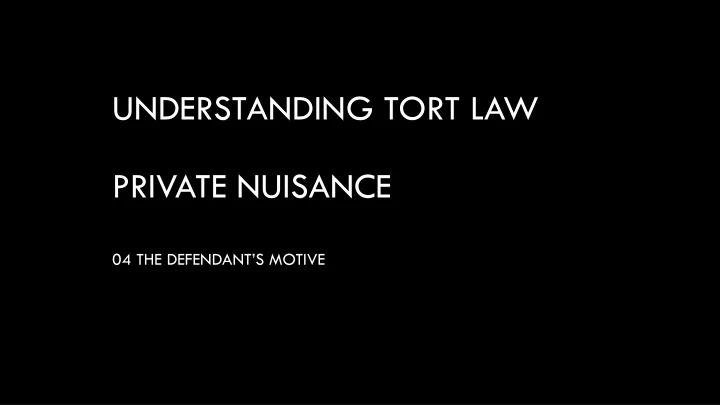

UNDERSTANDING TORT LAW PRIVATE NUISANCE 04 THE DEFENDANT’S MOTIVE
The Mayor Of Bradford v Pickles [1895] AC 587 (HL)
LORD WATSON “No use of property, which would be legal if due to a proper motive, can become illegal because it is prompted by a motive which is improper or even malicious.” • If the act is lawful, then the D has a right to do it • If the act is unlawful, then the D has no right to do it • Therefore, malice is not relevant
Hollywood Silver Fox Farm Limited v Emmett [1936] 2 KB 408 (CA) & Christie v Davey [1893] 1 h 316
“I have a perfect right to amuse myself on any musical instrument I may choose … What I do is simply for recreation’s sake, and to perfect myself in my musical studies”. “[Y]ou say that I interfere with your clients’ professional pursuits. Just so; this is simply reversing my complaint, and what is sauce for the goose is sauce for the gander”.
Christie • The D was making noise • The P was making noise • This is the same activity • P wins only because of the Ds’ malice. The D’s malice breaks the tie. Hollywood • The D was shooting • The P was raising foxes • Prima facie, the D’s activity was more ordinary/reasonable/fundamental than the P’s • Nevertheless, the P wins. • Thus, the D’s malice reverses what would otherwise have been the outcome of the case.
Christie • The D was banging on the walls • The P was playing music • The P’s activity was more ordinary/reasonable/fundamental than the D’s Hollywood • The D was damaging the P’s property • The P was raising foxes • P’s activity was more ordinary/reasonable/fundamental than the D’s
Recommend
More recommend